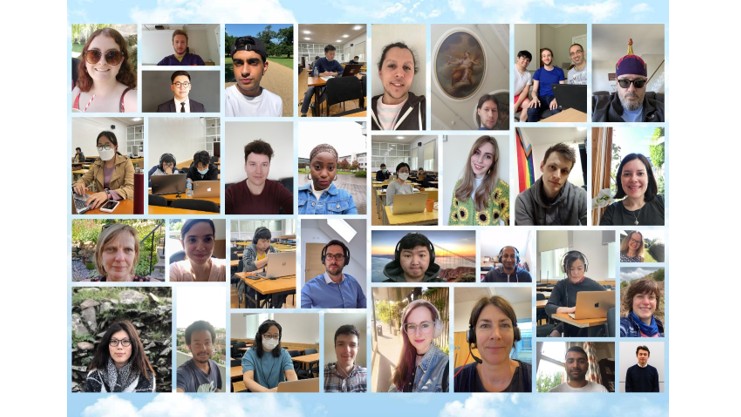We were pleased to welcome our partners from the NHS Royal National Hospital for Rheumatic Diseases; the National University of Mongolia; the National Development Agency, Mongolia; UNICEF Mongolia; and the National Centre for Maternal and Child Health of Mongolia to join us for SAMBa’s 14th Integrative Think Tank (ITT).
Participants from the University of Bath, National University of Mongolia, AND Systems Tech LLC, Universite Paul Sabatier Toulouse III, and students who are due to join SAMBa later this year, welcomed the opportunity to work on health and societal challenges, and enjoyed working in diverse teams that brought together different experiences, skills and perspectives.
Problem formulation
Our partners presented high level challenges on computer vision and big data for longitudinal modelling of psoriatic arthritis; bias, random sampling and disease trajectories; rare disease treatment; Mongolian household survey and UNICEF Mongolia survey; COVID19 modelling in Mongolia; and air pollution, weather and lung-related hospital admissions in Ulaanbaatar.
Groups of students, staff and partner representatives shared and discussed potential ideas and approaches which were then explored by teams as mathematical questions were developed. We rounded off the week with excellent presentations from students in their first year of SAMBa, plus other student and academic participants.
We are working with the Royal National Hospital for Rheumatic Diseases and our partners in Mongolia to determine how these questions can be taken forward together, for example as collaborative research projects or potential PhD research.
A warm welcome back to returning SAMBa students
It was wonderful to welcome back previous SAMBa students Tsogii Saizmaa, a member of the Mongolian partner team and academic at the National University of Mongolia (NUM); and Adwaye Rambojun, a member of the NHS partner team and Mathematical Innovation Research Associate at the University of Bath.
Tsogii shared her reflections on the ITT:
I participated in many ITTs as a student participant but this was my first ITT to involve in the whole process from contacting the partners in Mongolia, discussing their practical problems, working on the problem formulation and holding concluding discussions with the partners. The Mongolian partners were very happy with the whole ITT procedure and the results. Most importantly, they really appreciated the research-based approach to their problems and want to continue our cooperation.
For our colleagues and students at NUM, it was their first ITT experience and we learned a lot. I believe that our students now have a broader vision of how they can proceed with their career after graduation.
Working online and in person
The ITT was hosted online via Teams with opportunities for in-person team working in Bath. To ensure the best possible experience for everyone involved, we replicated the in-person ITT format as far as possible. We encouraged people to take regular breaks from the screen and provided an online art class one evening as well as an evening meal for those based in Bath. We also encouraged participants to walk, run, cycle or swim during the week to see if collectively we could virtually travel the 104 mile distance from the University of Bath to the Embassy of Mongolia, London.
More ITTs to come
We are currently planning for ITT15 which will be held in January 2022.
You can find out more about the ITT model, and read about previous ITTs, on the SAMBa webpage.

